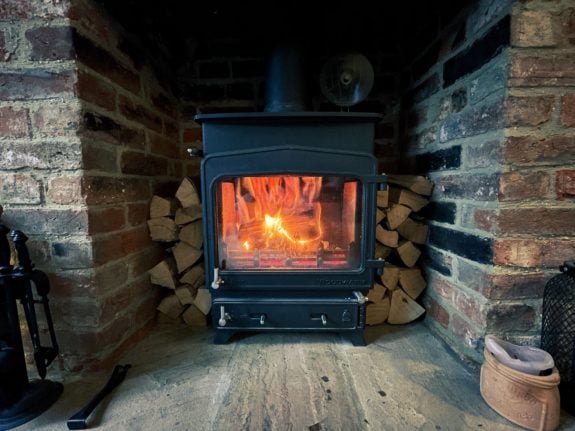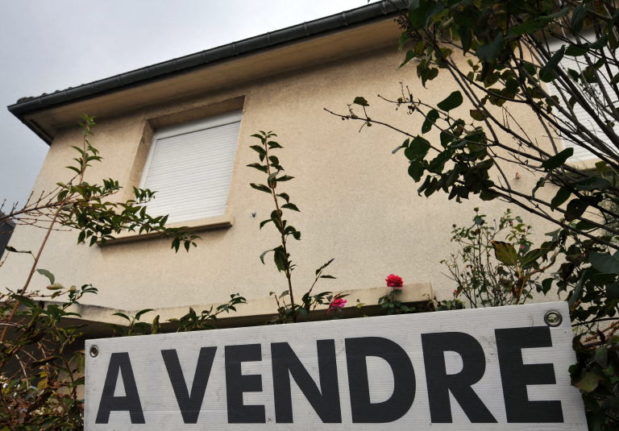There are already some rules in place on this, including localised bans on particular types of burner, but now Environment Minister Barbara Pompili has published a draft plan to reduce the emissions from domestic wood burning by 50 percent.
The fine particle emissions produced by open fires, log burners and wood-fired heating systems, known at PM 2.5 are harmful to humans and can be carcinogenic.
The ministry said that domestic wood burners are the largest single cause of fine particle emissions, responsible for 43 percent of PM 2.5 emissions and 50 percent of the finer particle PM 1.0 emissions.
The goal is twofold – reduce the number of domestic wood burners in use and ensure that those that are used perform more efficiently, produce fewer emissions and use cleaner fuel.
The recently-adopted climate law includes a target to reduce by half fine particles emissions in the most polluted areas and the protocol on wood burners is a key part of this.
Here’s what it says:
Grants – there are already a variety of grants available in France to make your home more energy efficient and these now include help with the costs of switching from wood burners to a cleaner method of heating. Find out how to access the grants HERE. The target is that 600,000 appliances will have been replaced by 2025.
Energy ratings – the age and energy efficiency of all wood-burning appliances will be included in the energy efficiency rating that tenants and house-buyers get.
Labelling – the energy efficiency and cleanliness rating of wood burners will be improved so that people buying are aware of the risks. This is via the existing Label flamme vert (green flame labelling) scheme.
But for those who continue to use wood-burners, the ministry wants to ensure that the fuel they are using is as clean and energy-efficient as possible.
Wood sold for burners will soon be required to carry labelling certifying its quality and low water content (so that it will burn efficiently) and whether it came from a sustainably managed forest.
The ministry also wants to increase the ‘formal log market’ ‘ie fuel and kindling sold in shops or from fuel businesses as opposed to gathered or sold or bartered informally, from 20 percent to 40 percent of the market.
So if you already have a fire or a log burner is there a risk of being ordered to tear it out? No, says the minister. In the press release announcing her policy, she says: “The action plan we are proposing aims to work for the climate cause by promoting more efficient wood heating while improving air quality, without opposing them altogether.”
However, some local authorities have put in some stringent measures, such as this Alpine valley that has banned the use of open fireplaces altogether, so if you are doing renovation work check with the préfecture if there are local measures in place concerning wood burners.



 Please whitelist us to continue reading.
Please whitelist us to continue reading.
Member comments